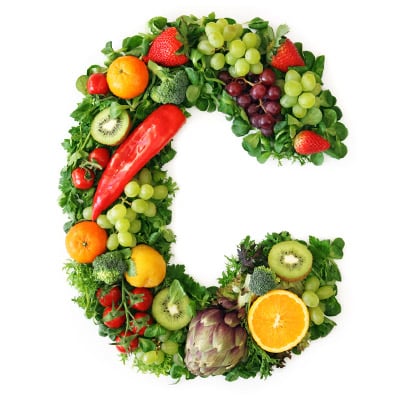Readers of this blog will have had frequent reminders about the importance of the inclusion of plenty of a variety of fruit and vegetable in the diet, and its benefit to the health of service users, patients and the general public alike.
Only this week, a new study was published in the American Journal of Clinical Nutrition concluding that a high concentration of vitamin C in the blood from intake of fruit and vegetables is associated with a reduced risk of heart disease and early death.
The study, undertaken by researchers from the University of Copenhagen, looked at risk of heart disease and mortality in almost 100,000 Danish people in the Copenhagen General Population Study, of which 10,000 subjects had heart disease and around 8,500 had died. Using dietary data collected as part of the population study, they compared the risk of heart disease and mortality in those with the highest self-reported fruit and vegetable intake to the lowest. The researchers also measured blood vitamin C levels in 3500 subjects.
Highest intake of fruit and veg in study associated with reduced risk of death
The study suggested that those with the highest intake of fruit and vegetables have around a 15% reduced risk of developing heart disease, and a 20% lower risk of all-cause mortality compared with those who rarely eat fruit and vegetables and suggested that reduced risk may be associated with higher vitamin C concentrations in the blood, which is influenced by consumption levels of fruit and vegetables, and also by genetics.
So what does vitamin C actually do in the body?
Vitamin C
- helps build connective tissue which supports and connects different types of tissues and organs in the body.
- is an antioxidant, which protects cells and biological molecules from the damage associated with many diseases , including heart disease.
The human body is not able to produce vitamin C (strangely guinea pigs and bats can’t either!) which means we must get this vitamin from our diet. Good sources of vitamin C include citrus fruits and their juices, peppers, broccoli, curly kale, Brussel sprouts, kiwi fruit blackcurrants and strawberries. Also remember that storage time and cooking can reduce vitamin C levels.
We all know that eating fruit and veg is good for us and our service users, but this research helps to provide some clues as to why this may be so. The researchers’ theory is that eating more fruit and veg increases vitamin C concentration in the blood, which is protective.
Yet another reason to encourage service users to increase intake of fruit and veg
Study conclusions based on dietary data from a population study are limited as fruit and vegetable intakes are often markers for other healthy lifestyles such as healthy weight and physical activity. It is likely that many phytonutrients in fruit and veg, including but not exclusive to, vitamin C are important for our health. In addition, there are of course other risk factors that have an impact on heart disease and health. However, fruit and veg are clearly important in a healthy diet, and we are getting closer to finding out why. We still, on average, eat less than 5 portions of fruit and veg a day – let’s try and encourage more.
Ayela Spiro, British Nutrition Foundation – QCS Expert Nutrition Contributor




